 W
WStephen Ailes was a prominent member of the District of Columbia Bar and a partner in the firm of Steptoe & Johnson. He served as the United States Under Secretary of the Army from February 9, 1961 to January 28, 1964 and as United States Secretary of the Army from January 28, 1964 to July 1, 1965. He received his undergraduate education at Princeton University, and attended the law school of West Virginia University, where he was a member of Phi Kappa Psi fraternity.
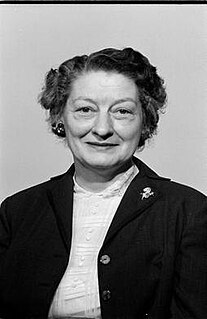 W
WBeatrice Aitchison was an American mathematician, statistician, and transportation economist who directed the Transport Economics Division of the United States Department of Commerce, and later became the top woman in the United States Postal Service and the first policy-level appointee there.
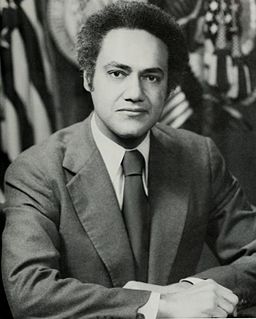 W
WClifford Leopold Alexander Jr. is an American lawyer, businessman and public servant from New York City. He was the first African-American Secretary of the Army.
 W
WGeorge Wildman Ball was an American diplomat and banker. He served in the management of the US State Department from 1961 to 1966 and is remembered most as the only major dissenter against the escalation of the Vietnam War. He refused to publicize his doubts, which were based on calculations that South Vietnam was doomed. He also helped determine American policy regarding trade expansion, Congo, the Multilateral Force, de Gaulle's France, Israel and the rest of the Middle East, and the Iranian Revolution.
 W
WLowell K. Bridwell was an American journalist. He was a correspondent for the Associated Press and the Ohio State Journal from 1946 to 1950. He was director of the Federal Highway Administration from 1967 to 1969.
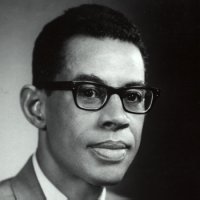 W
WWilliam H. Brown III is an American attorney. In 1963, he became a partner at the law firm of Norris Schmidt Green Harris Higginbotham & Brown, Philadelphia's first black-owned law firm. Brown was appointed to the U.S. Equal Employment Opportunity Commission (EEOC) by President Lyndon Johnson in 1968 and named its Chairman by President Richard Nixon in 1969. He was the fourth Chairman of the EEOC, serving from May 5, 1969, to December 23, 1973. Today, he is senior counsel to Schnader Harrison Segal & Lewis LLP.
 W
WMcGeorge "Mac" Bundy was an American academic who served as United States National Security Advisor to Presidents John F. Kennedy and Lyndon B. Johnson from 1961 through 1966. He was president of the Ford Foundation from 1966 through 1979. Despite his career as a foreign-policy intellectual, educator, and philanthropist, he is best remembered as one of the chief architects of the United States' escalation of the Vietnam War during the Kennedy and Johnson administrations.
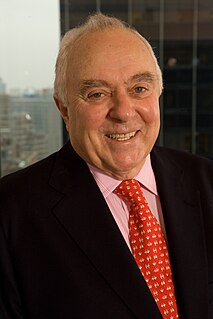 W
WJoseph Anthony Califano Jr. is a former United States Secretary of Health, Education, and Welfare and the founder and chairman of The National Center on Addiction and Substance Abuse at Columbia University (CASAColumbia), an evidence-based research organization. He is one of two living former Secretaries of Health, Education, and Welfare.
 W
WMortimer Maxwell Caplin was an American lawyer and educator, and the founding member of Caplin & Drysdale, Chartered.
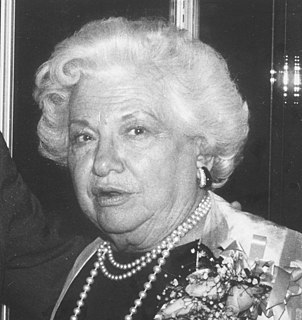 W
WMary Elizabeth Sutherland Carpenter was a writer, feminist, reporter, media advisor, speechwriter, political humorist, and public relations expert. Carpenter was born in historic Salado in southern Bell County, Texas. In 1936, her 24-room residence there was declared a state historic monument. In 1967, a plaque was unveiled to indicate that Carpenter had once lived there. At the age of seven, she moved with her family to Austin. Carpenter stood in the forefront of the Women's Movement when it began and never wavered from her platform. Her projects and causes ranged from supporting high tech to fighting cancer. Often called the "funniest woman in politics", she was in demand as a public speaker until her death.
 W
WChester Victor Clifton Jr. was a Major General in the United States Army and an aide to Presidents John F. Kennedy and Lyndon B. Johnson.
 W
WArchibald Cox Jr. was an American lawyer and law professor who served as U.S. Solicitor General under President John F. Kennedy and as a special prosecutor during the Watergate scandal. During his career, he was a pioneering expert on labor law and was also an authority on constitutional law. The Journal of Legal Studies has identified Cox as one of the most cited legal scholars of the 20th century.
 W
WCartha Dekle DeLoach, known as Deke DeLoach, was deputy associate director of the Federal Bureau of Investigation (FBI) of the United States. During his post, DeLoach was the third most senior official in the FBI after J. Edgar Hoover and Clyde Tolson.
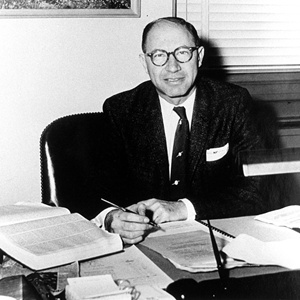 W
WMyer Feldman, known as Mike Feldman was an American political aide in the Kennedy and Johnson administrations. Hailing from Philadelphia, Feldman was a trained lawyer and alumnus of the University of Pennsylvania, which he attended on a scholarship. He served in the Army Air Force during the Second World War prior to joining Kennedy's campaign trail in 1957.
 W
WWilliam Chapman Foster was an American businessman and high-ranking government official. He served as United States Under Secretary of Commerce and United States Deputy Secretary of Defense under President Harry Truman. Later, he served as the first United States Arms Control and Disarmament Agency director, under Presidents John F. Kennedy and Lyndon B. Johnson.
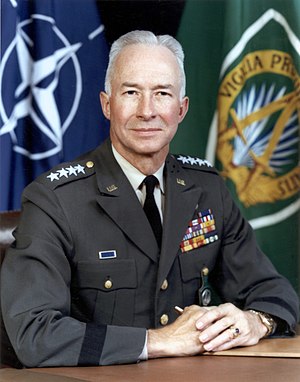 W
WAndrew Jackson Goodpaster was an American Army General. He served as NATO's Supreme Allied Commander, Europe (SACEUR) from July 1, 1969, and Commander in Chief of the United States European Command (CINCEUR) from May 5, 1969, until his retirement December 17, 1974. As such, he was the commander of all NATO (SACEUR) and United States (CINCEUR) military forces stationed in Europe and the surrounding regions.
 W
WDoris Helen Kearns Goodwin is an American biographer, historian, former sports journalist and political commentator.
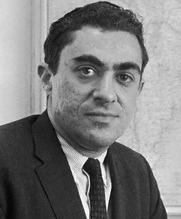 W
WRichard Naradof Goodwin was an American writer and presidential advisor. He was an aide and speechwriter to Presidents John F. Kennedy and Lyndon B. Johnson, and to Senator Robert F. Kennedy.
 W
WKermit Gordon was Director of the United States Bureau of the Budget during the administration of John F. Kennedy. He continued to serve in this capacity in the Lyndon Johnson administration. He oversaw the creation of the first budgets for Johnson's Great Society domestic agenda. Gordon was a member of the Council of Economic Advisors, 1961-1962. After he retired from government service, he joined the Brookings Institution, first as vice president (1965–1967) and then as its president for nearly a decade (1967–1976). During his tenure, Brookings developed a left-of-center reputation chiefly because Gordon was a supporter of the Great Society and critic of the Vietnam War.
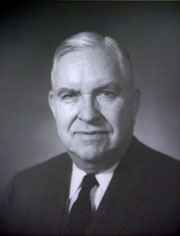 W
WErwin Nathaniel Griswold was an appellate attorney who argued many cases before the U.S. Supreme Court. Griswold served as Solicitor General of the United States (1967–1973) under Presidents Lyndon B. Johnson and Richard M. Nixon. He also served as Dean of Harvard Law School for 21 years. Several times he was considered for appointment to the U.S. Supreme Court. During a career that spanned more than six decades, he served as member of the U.S. Commission on Civil Rights and as President of the American Bar Foundation.
 W
WNajeeb Elias "Jeeb" Halaby, Jr. was an American businessman, government official, celebrated aviator, and the father of Queen Noor of Jordan. He is known for making the first transcontinental jet flight in U.S. history and for his service as CEO and chairman of Pan American World Airways from 1969 to 1972.
 W
WWilliam Averell Harriman, better known as Averell Harriman, was an American Democratic politician, businessman, and diplomat. The son of railroad baron E. H. Harriman, he served as Secretary of Commerce under President Harry S. Truman, and later as the 48th Governor of New York. He was a candidate for the Democratic presidential nomination in 1952 and 1956, as well as a core member of the group of foreign policy elders known as "The Wise Men".
 W
WRoger Hilsman Jr. was an American soldier, government official, political scientist, and author. He served in Merrill's Marauders, and then with the Office of Strategic Services as a guerrilla leader, in the China-Burma-India Theater of World War II. He later was an aide and adviser to President John F. Kennedy and, briefly, to President Lyndon B. Johnson, in the U.S. State Department while serving as Director of the Bureau of Intelligence and Research during 1961–63 and Assistant Secretary of State for Far Eastern Affairs during 1963–64. There Hilsman was a key and controversial figure in the development of U.S. policies in South Vietnam during the early stages of U.S. involvement in the Vietnam War. He left government in 1964 to teach at Columbia University, retiring in 1990. He was a Democratic Party nominee for election to the U.S. House of Representatives in 1972 but lost in the general election. He was the author of many books about American foreign policy and international relations.
 W
WUral Alexis Johnson was a United States diplomat.
 W
WJames Robert Jones is an American lawyer, diplomat, Democratic politician, a retired U.S. Congressman from Oklahoma, and a former U.S. Ambassador to Mexico.
 W
WLeonard Carpenter Meeker was an American politician, lawyer and diplomat who served as the U.S. Ambassador to Romania. He was the father of Sarah Meeker Jensen FAIA and Charles Meeker, 34th Mayor of Raleigh, North Carolina.
 W
WHarry Joseph Middleton Jr. was an American journalist, author, and library director who served as Lyndon B. Johnson's Presidential speech writer and staff assistant from 1967 to 1969. Middleton was also director of the Lyndon Baines Johnson Library and Museum from 1971 until 2002, and led the Lyndon Baines Johnson Foundation from 1993 until 2004.
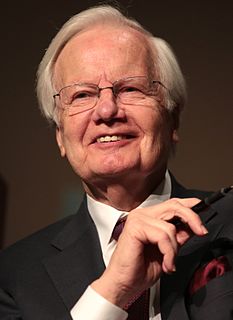 W
WBilly Don Moyers is an American journalist and political commentator. He served as the ninth White House Press Secretary under the Johnson administration from 1965 to 1967. He also worked as a network TV news commentator for ten years. Moyers has been extensively involved with public broadcasting, producing documentaries and news journal programs. He has won numerous awards and honorary degrees for his investigative journalism and civic activities. He has become well known as a trenchant critic of the corporately structured U.S. news media.
 W
WPaul Henry Nitze was an American politician who served as United States Deputy Secretary of Defense, U.S. Secretary of the Navy, and Director of Policy Planning for the U.S. State Department. He is best known for being the principal author of NSC 68 and the co-founder of Team B. He helped shape Cold War defense policy over the course of numerous presidential administrations.
 W
WYoichi R. Okamoto was the second official U.S. presidential photographer, serving Lyndon B. Johnson.
 W
WEugene Victor Debs Rostow was an American legal scholar and public servant. He was Dean of Yale Law School and served as Under Secretary of State for Political Affairs under President Lyndon B. Johnson. In the 1970s Rostow was a leader of the movement against détente with Russia and in 1981, President Ronald Reagan appointed him director of the Arms Control and Disarmament Agency.
 W
WWalt Whitman Rostow was an American economist, professor and political theorist who served as National Security Advisor to President of the United States Lyndon B. Johnson from 1966 to 1969.
 W
WJoseph John Sisco was a diplomat who played a major role in then-Secretary of State Henry Kissinger's shuttle diplomacy in the Middle East. His career in the State Department spanned five presidential administrations.
 W
WTheodore Chaikin Sorensen was an American lawyer, writer, and presidential adviser. He was a speechwriter for President John F. Kennedy, as well as one of his closest advisers. President Kennedy once called him his "intellectual blood bank".
 W
WMaxwell Davenport Taylor was a senior United States Army officer and diplomat of the mid-20th century. He served with distinction in World War II, most notably as commander of the 101st Airborne Division, nicknamed "The Screaming Eagles."
 W
WJack Joseph Valenti was an American political advisor and lobbyist who served as a Special Assistant to U.S. President Lyndon B. Johnson. He was also the longtime president of the Motion Picture Association of America. During his 38-year tenure in the MPAA, he created the MPAA film rating system, and he was generally regarded as one of the most influential pro-copyright lobbyists in the world.
 W
WCyrus Roberts Vance was an American lawyer and United States Secretary of State under President Jimmy Carter from 1977 to 1980. Prior to serving in that position, he was the United States Deputy Secretary of Defense in the Johnson administration. During the Kennedy administration he was Secretary of the Army and General Counsel of the Department of Defense.
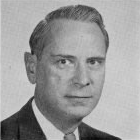 W
WJames Bernard West, known as J. B. West, was the 6th Chief Usher of the White House serving from 1957 to 1969. His best-selling book, Upstairs at the White House: My Life with the First Ladies, documents his time in the executive mansion and is considered a good source of material on the First Families he served.
 W
WLee Calvin White was an advisor to both President Kennedy and Johnson, most notably on civil rights matters.
 W
WGeraldine Whittington was the personal executive secretary to President Lyndon B. Johnson, and was the first African-American secretary in the White House.
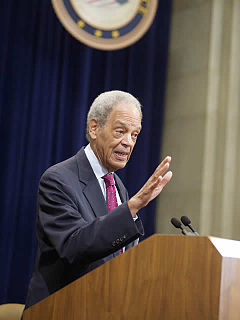 W
WRoger Wilkins was an African-American civil rights leader, professor of history, and journalist.
 W
WGerhard Mennen "Soapy" Williams was the 41st Governor of Michigan, elected in 1948 and serving six two-year terms in office. He later served as Assistant Secretary of State for African Affairs under Presidents John F. Kennedy and Lyndon Johnson and Chief Justice of the Michigan Supreme Court.
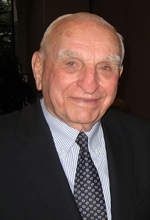 W
WCharles John Zwick was an American civil servant who served as director of the United States' Office of Management and Budget from January 29, 1968 until January 21, 1969 under the administration of Lyndon B. Johnson.